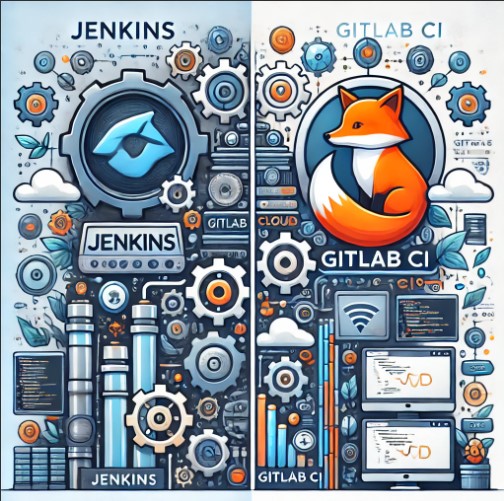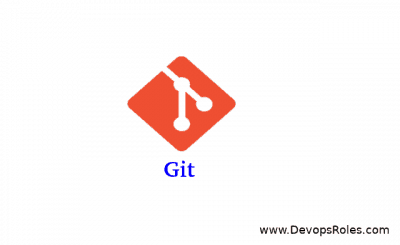Table of Contents
Introduction
In the world of DevOps and continuous integration/continuous delivery (CI/CD), tools like Jenkins and GitLab CI have emerged as industry leaders. Both platforms streamline software development, automate workflows, and enhance team collaboration. But which one is better suited for your needs? In this article, we will dive deep into Jenkins vs GitLab CI, exploring their features, use cases, pros, and cons, to help you make an informed decision.
Jenkins vs GitLab CI: An Overview
What is Jenkins?
Jenkins is an open-source automation server widely used for building, testing, and deploying applications. Known for its flexibility and extensive plugin ecosystem, Jenkins supports almost every programming language and toolchain. It’s an excellent choice for organizations seeking a customizable CI/CD solution.
Key Features of Jenkins:
- Open-source and highly extensible.
- Over 1,800 plugins for diverse integrations.
- Supports distributed builds across multiple nodes.
- Active community support.
What is GitLab CI?
GitLab CI is a built-in CI/CD tool in GitLab, a web-based DevOps platform. Fully integrated with GitLab’s repository management system, it provides a seamless workflow for code versioning, testing, and deployment. GitLab CI is particularly appealing to teams already using GitLab for source control.
Key Features of GitLab CI:
- Native integration with GitLab repositories.
- YAML-based pipeline configuration.
- Built-in container registry and Kubernetes support.
- Comprehensive analytics and monitoring tools.
Key Differences Between Jenkins and GitLab CI
| Feature | Jenkins | GitLab CI |
|---|---|---|
| Ease of Setup | Requires manual setup and configuration. | Seamless setup as part of GitLab. |
| Plugin Ecosystem | Extensive plugin ecosystem. | Limited to GitLab’s native capabilities. |
| Scalability | Highly scalable with multiple nodes. | Limited by GitLab’s infrastructure. |
| User Interface | Less intuitive, dated UI. | Modern and user-friendly. |
| Integration | Integrates with various tools via plugins. | Limited to GitLab’s ecosystem. |
| Cost | Free, but hosting can be costly. | Free tier available; premium plans exist. |
Use Cases: When to Choose Jenkins or GitLab CI
When to Use Jenkins
- Large, Complex Projects: Jenkins excels in managing large-scale pipelines with distributed builds.
- Diverse Toolchains: If your team uses multiple languages, frameworks, or custom tools, Jenkins’ plugin library ensures compatibility.
- Custom Solutions: Jenkins is ideal for teams that require highly customized CI/CD workflows.
When to Use GitLab CI
- Small to Medium Projects: GitLab CI is a great choice for teams looking for simplicity and seamless integration.
- GitLab Users: Teams already using GitLab for version control benefit from its native CI/CD capabilities.
- Kubernetes Deployments: GitLab CI simplifies containerized deployments with its built-in Kubernetes support.
Setting Up Jenkins and GitLab CI: Step-by-Step
Setting Up Jenkins
- Install Jenkins:
- Download and install Jenkins from the official website.
- Install Required Plugins:
- Use Jenkins’ Plugin Manager to install essential plugins like Git, Docker, and Pipeline.
- Configure Jenkins:
- Create new jobs and define build pipelines using the DSL (Domain-Specific Language).
- Run Your Pipeline:
- Test and execute your build pipelines on Jenkins.
Setting Up GitLab CI
- Create a Repository:
- Create or use an existing repository on GitLab.
- Define a
.gitlab-ci.ymlFile:
- Write pipeline configurations in the YAML file.
- Run the Pipeline:
- Commit the file to trigger the pipeline.
- Monitor Pipelines:
- Use GitLab’s UI to view pipeline statuses and logs.
Examples: Jenkins vs GitLab CI in Action
Jenkins Pipeline Example
pipeline {
agent any
stages {
stage('Build') {
steps {
echo 'Building...'
}
}
stage('Test') {
steps {
echo 'Testing...'
}
}
stage('Deploy') {
steps {
echo 'Deploying...'
}
}
}
}GitLab CI Pipeline Example
stages:
- build
- test
- deploy
build_job:
stage: build
script:
- echo "Building..."
test_job:
stage: test
script:
- echo "Testing..."
deploy_job:
stage: deploy
script:
- echo "Deploying..."
FAQ: Frequently Asked Questions
Is Jenkins free to use?
Yes, Jenkins is open-source and free to use. However, hosting and maintenance costs may apply.
Does GitLab CI support third-party integrations?
While GitLab CI has fewer integrations than Jenkins, it supports popular tools like Docker, Kubernetes, and Prometheus.
Can Jenkins work with GitLab repositories?
Yes, Jenkins can integrate with GitLab repositories using the GitLab plugin.
Which is better for Kubernetes deployments?
GitLab CI provides built-in Kubernetes support, making it more straightforward for containerized environments.

Conclusion
Choosing between Jenkins and GitLab CI depends on your project’s complexity, team size, and existing infrastructure. Jenkins shines in flexibility and scalability, making it perfect for complex projects. On the other hand, GitLab CI offers a seamless, user-friendly experience for teams already using GitLab. By understanding their strengths and limitations, you can select the CI/CD tool that best suits your needs.
For further reading, explore the official Jenkins documentation and GitLab CI documentation. Thank you for reading the DevopsRoles page!


